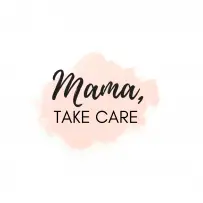What Does Journaling Mean?
The definition of journaling, according to Meriam-Webster, is “A record of experiences, ideas, or reflections kept regularly for private use.”
Some may see journaling as a diary, yet the way we use journals today is much more than just a daily log.
Not to mention, journaling is a tool to help facilitate growth and learn how to process feelings as to release them on paper.
Nonetheless, there are no real rules for journaling.
Most people use journals as a form of expression and a way to release their inner feelings.
Journaling can be done in a regular notebook, or one can purchase a guided journal to help facilitate writing.
It is a cathartic way to live a balanced, whole-hearted life and has been shown to help with depression and anxiety.
By releasing feelings onto paper, you can reflect on thoughts or life events and begin to move forward. You can also write about experiences that bring your joy. How you use your journal is up to you, but it is best to use it often and keep writing consistently.
What is the Purpose of Journaling and Journal Writing?
Often we use journaling to express feelings, as opposed to just jotting down our day-to-day activities. We journal with a purpose in mind to help release feelings and live a whole-hearted, fulfilled life.
Keeping feelings bottled inside is toxic. However, many do not allow themselves to process feeling and walk around with a “weight” on their shoulders.
Journaling can be used as a way to release this burden and being to heal and find yourself.
Journaling helps release thoughts and improve symptoms of depression and anxiety. Yet, journaling is also a way to help you cope with the stressors of daily life. If you’re feeling anxious or sad, journaling can help you release feelings, whether they are negative or positive.
Yes, journaling can be a positive aspect of your life and help you cope with the following:
- anxiety
- depression
- overwhelm
- releasing your creative side
- self-care
If you want to have a better outlook on life and learn to be happier, journaling is key
. Journaling is a task of self-reflection that can start your journey to inner peace and self-discovery.
Related:
- How to Use a Journal for Self-Care
- 10 Ways to Fit Self-Care in Your Everyday Life
- 6 Steps to Help with Mom Anxiety
- How to Stay Healthy While Working From Home
- 7 Tips to Avoid Mom Burnout
Importance of Keeping a Journal
Keeping a journal allows one to release the inner feelings he/she may be holding onto inside. It is true, as we begin to release feelings only then can we truly heal.
Have you ever held onto a feeling of anger or sadness? When you carry this burden with you, it can fester.
Yet, it will eventually come out, but unfortunately not always in a healthy manner. If you are harboring feelings of anger, sadness, or resentment you may find yourself doing some or all of the following:
- snapping at loved ones
- yelling
- losing your cool with others
- road rage
- negative thinking
- feeling overwhelmed
- anxiety
Obviously, these are a few things that can happen when you hold feelings inside instead of processing them. And there are many more “everyday” things that will bother you or annoy you as you harbor resentment.
Yet, if you are able to process your feelings through journaling, you will learn to release the anger or sadness associated with events that have happened in your life.
Take childhood trauma for example. If you suffered abuse and can’t seem to move past the anxiety or feelings of unworthiness, you can use a journal to release anger and begin to heal.
One of the best ways to release feelings independently is by using a journal. However, if you feel your anger and depression are getting worse or out of control, it is always advised to seek professional help. However, if you are just dealing with the stressors of daily life, journaling is a God-send.
How Do I Start Journaling?
Learning to start journaling is easy.
First, grab a journal. If you want a cute journal, check out these journals in my printable shop.
If you don’t want to be fancy, you can just use a notebook. I find if I really love my journal, I will often use it often.
If you don’t know what to write about, you can check out some journal prompts (also offered in my printable shop) or you can check out the prompts at the bottom of this post.’
Find a quiet spot and start writing. You may want to find a tree outside to sit under or retreat in the solitude of your bedroom and shut the door. As you begin you can do the following:
- Write down your feelings at the moment.
- Write about something that has been bothering you from your past.
- Write about your future goals.
As you can see, the key is to just start writing.
Once you start journaling, you will find it becomes easier.
Don’t worry about your spelling or grammar. Just let your thoughts flow freely. Feel free to draw pictures or doodle along with your writing. These forms of self-expression can also be therapeutic.
How Has Journaling Helped Me Personally
Journaling has honestly helped me in some of the darkest times of my life. When I was in a bad relationship, journaling helped me come out of my sadness. It also helped me reread my thoughts and see a clear path in life.
Using a journal is cathartic and life-changing.
Journaling has also helped me deal with my anxiety. At times, when my mind races with fear, I use journaling to help calm my mind. This is especially helpful when I can’t sleep at night due to anxiety.
Journaling Tips
Journaling can help improve success and happiness. Here are some journaling tips to help you on your path:
- be consistent
- be honest
- start small
- keep it private
- use a platform that works for you (online or pen and paper)
- write down worries/fears
- use journaling to make decisions
- write about gratitude
- keep it simple
Keep in mind, there is no “one-size-fits-all” approach to journaling so do what works for you. It is important to be consistent with journaling to see the most benefits. Use journaling to help you make decisions and release feelings, but don’t make your journal into a “to-do” list.
Related Self-Care Posts:
- How to Embrace the Art of Doing Nothing
- How to Develop a Growth Mindset
- Self-Care Activities for Moms
- Creative Ways to Practice Self-care
- 5 Types of Self-Care for Moms
- Journaling Tips and Prompts
- How to Rediscover Yourself After Motherhood
- 10 Self-Care Tips for Moms
- How to Start Your Morning Off Right
- Self-Care Affirmation to See Self-Care is NOT selfish
- 10 Wellness Tips While Working From Home
- Evening Self-Care Routine
Journaling Ideas:
Use these journal prompts to help you start your journal.
Pin me for later:

Here are ten journal prompts to get you started:
- Today I am feeling…
- I want to let go of…
- My sadness is stopping me from…
- I feel happiest when…
- My family makes me feel…
- My goal this year is to…
- If I could go anywhere…
- My heart sings today because…
- I and feeling down about…
- ______ makes me feel uplifted because…
What is Journaling Final Thoughts…
Journaling is a wonderful way to set you on a path of self-discovery and inner peace. Journaling can help you deal with emotional distress and cope with anxiety and sadness. Use your notepad, or buy a journal to begin your journey of journaling. You will find it is extremely cathartic and you will continue to grow your journaling skills over time.
Don’t forget to check out the journals and planners in my printable shop.


I’m glad that you talked about how journaling can help you have a better outlook on life if you use it to cope with anxiety and depression. I’ve been struggling with depression for a year now, and I want to have an outlet to release my emotions. I’ll have to buy hard cover custom journals this weekend so I can get started on journaling soon.
I’m so glad you found this helpful and I’m sending you positive vibes and love on your journey.